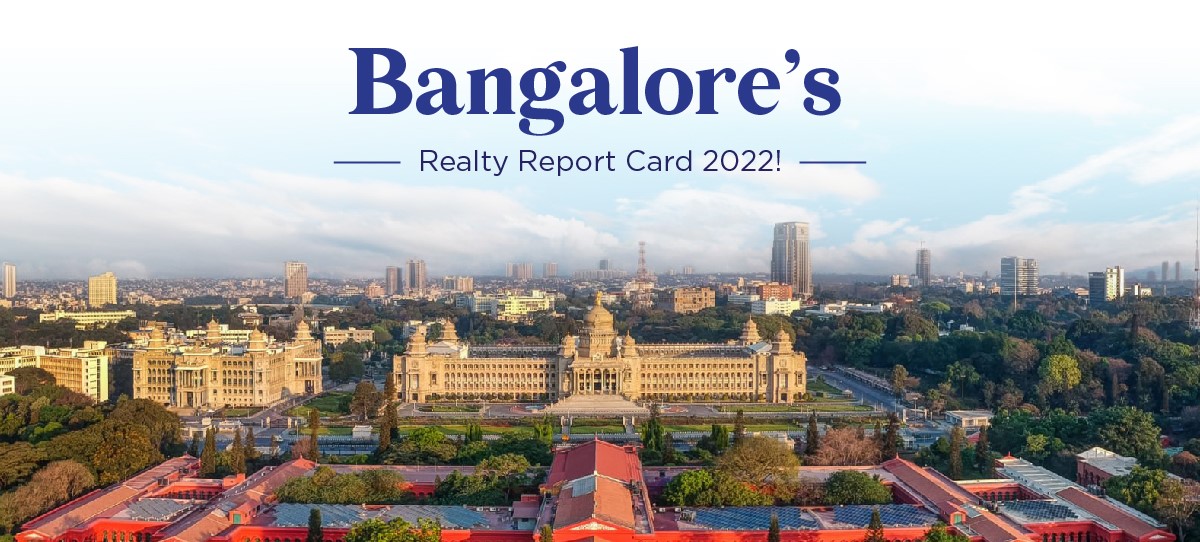Bangalore Real Estate
Read latest blogs and articles from Housystan

The Information mentioned here was last updated on:
29/1/2026Exploring the Dynamic Landscape of Bangalore Real Estate
Bangalore, often called the "Silicon Valley of India," is renowned for its booming IT sector and vibrant culture. However, another sector that has been steadily gaining momentum in this bustling city is real estate. With a blend of tradition and modernity, Bangalore's real estate market is flourishing, attracting buyers and investors from across the globe. This article delves into the various aspects of Bangalore's real estate scene, offering readers a comprehensive overview.
The Rise of Bangalore's Real Estate Market
- Verified Tenants/Buyers
- Unlimited Property Listing
- Zero subscription/charges fee
Bangalore's real estate market has witnessed a remarkable transformation over the past few decades. Here's why:
- Tech Hub Influence: As the center of India's IT industry, Bangalore attracts a large workforce. This influx fuels demand for both residential and commercial properties.
- Job Opportunities: High employability rates draw professionals from various fields, increasing the need for housing and workspaces.
- Infrastructure Development: Significant investments in infrastructure, including improved public transportation and connectivity, have enhanced the city's appeal.
Popular Residential Areas in Bangalore
The city's diverse neighborhoods cater to different preferences and budgets. Here are some sought-after areas for residential properties:
1. Whitefield: Known for its IT parks and modern lifestyle, Whitefield offers a mix of apartments, villas, and gated communities.
2. Koramangala: A bustling locality with trendy cafes and shopping centers. It's a preferred choice for young professionals and families alike.
3. Indiranagar: With its upscale vibe, Indiranagar boasts premium properties and excellent connectivity.
4. HSR Layout: Known for its planned layout and green spaces, ideal for families seeking a quieter environment.
5. Jayanagar: A mix of tradition and modernity, offering spacious homes and vibrant local markets.
Commercial Real Estate: Opportunities Abound
The growth in Bangalore’s commercial real estate sector is driven by:
- Business Parks: Areas like Electronic City and Manyata Tech Park house major corporations, creating demand for office spaces.
- Co-working Spaces: An increasing number of startups and freelancers are opting for co-working spaces, leading to a rise in innovative workspace solutions.
- Retail Expansion: With a burgeoning middle class, retail spaces in Bangalore, such as those in MG Road and Brigade Road, are flourishing.
Investing in Bangalore Real Estate
For those considering an investment in Bangalore's real estate, the following points are notable:
- Appreciation Rates: Bangalore has shown consistent property value appreciation, offering potential capital gains.
- Rental Yields: The demand for rental properties, especially in prime areas, promises lucrative returns.
- Affordable Housing: Initiatives under India's "Housing for All" mission have made affordable housing projects more accessible to buyers.
Key Considerations for Buyers
When planning to purchase property in Bangalore, consider these crucial factors:
- Budget: Determine your maximum budget, keeping in mind additional costs like registration fees and maintenance charges.
- Location: Proximity to the workplace, schools, and amenities can significantly impact property value and your quality of life.
- Builder Reputation: Opt for established developers with a track record of delivering projects on time.
- Legal Due Diligence: Ensure all property documents are in order and verify approvals from relevant authorities.
Future Prospects of Bangalore Real Estate
Looking ahead, several trends and developments could shape the future of Bangalore's real estate:
- Sustainable Development: Eco-friendly and sustainable building practices are becoming increasingly popular, driven by environmental awareness and demand for green amenities.
- Smart City Initiatives: Government projects aim to enhance urban infrastructure, making Bangalore even more livable and investor-friendly.
- Peripheral Growth: Areas on the city outskirts are witnessing rapid development, offering more affordable property options.
Navigating the Real Estate Process
Here are some steps to help you navigate buying real estate in Bangalore:
1. Research: Gather information about different localities and compare property prices.
2. Visit Properties: Schedule visits to shortlisted properties to get a real feel for their suitability.
3. Negotiate: Don't hesitate to negotiate the price and terms with sellers or developers.
4. Consult Experts: Engage with real estate agents, legal advisors, and financial consultants for professional guidance.
5. Finalize and Purchase: Once satisfied, proceed with the necessary documentation to complete the purchase.
Tips for First-time Homebuyers
First-time buyers can benefit from these handy tips:
- Pre-Approved Loans: Apply for a pre-approved loan to understand your purchasing power and speed up the buying process.
- Home Inspections: Conduct thorough inspections to evaluate property conditions and identify any potential issues.
- Market Trends: Stay informed about market trends to make informed decisions regarding the timing of your purchase.
- Long-Term Perspective: Plan with a long-term perspective to ensure your property meets your future needs.
Conclusion-free Continuity
Bangalore's real estate market is undeniably dynamic, with opportunities abounding for both residential and commercial investments. As the city continues to evolve technologically and economically, its real estate sector remains an attractive proposition for locals and expatriates alike. Whether you're a first-time buyer or a seasoned investor, understanding the nuances of Bangalore's property landscape will aid in making informed and beneficial decisions.
For more insights into real estate across Indian cities, explore other resources and guides to broaden your understanding and options. Keep your focus on emerging trends to take advantage of the best opportunities Bangalore has to offer.